An investigation on protein drinks published in the July edition of Consumer Reports magazine, which was then picked up by CBS and NPR, has been causing waves of concern or even alarm to ripple through the fitness and bodybuilding world. Supplement companies are up in arms and people are wondering whether they should stop drinking protein shakes after the magazine said they tested 15 protein drinks for heavy metals (arsenic, cadmium, lead and mercury) and 3 of them came up above the proposed safe limits…
“We purchased 15 protein powders and drinks mainly in the New York metro area or online and tested multiple samples of each for arsenic, cadmium, lead and mercury” said Consumer Reports.
“Concentrations in most products were relatively low,” continued the article, “but when taking into account the large serving size suggested, the number of micrograms per day for a few of the products was high compared with most others tested.”
Out of the 15 products tested, the following exceeded the U.S. Pharmocopeia (USP) suggested limits for safety:
EAS Myoplex Original Rich Dark Chocolate (ready to drink liquid): 16.9 arsenic, 5.1 cadmium
Muscle Milk chocolate powder: 12.2 arsenic, 5.6 cadmium, 13.5 lead, 0.7 mercury
Muscle Milk Vanilla Cream: 12.2 lead
* Amounts in micrograms
So, if you use protein drinks should you be worried? Should you stop drinking them? Well, it appears disconcerting that certain brands are high in these metals, but keep in mind that:
(1) Some people and organizations are questioning the choice of 3rd party lab used by Consumer reports, as well as the definitions for acceptable safe levels.
(2) These test results showed that that 12 out of 15 products were within safe limits even at high doses (or had zero heavy metals present), and
(3) Products which tested high were tested based on very large doses. Therefore, this might be a red flag only for very heavy users (three shakes a day or up to 8 scoops) of specific products (not protein powder in general)
Heavy metal contamination is a particular health concern for certain populations including infants, growing young children, women of childbearing age who plan to have kids soon, pregnant women, nursing women.
However, I don’t believe this report is a reason for panic or giving up moderate use of protein supplements.
Due to all the publicity, I imagine that the few companies named will write rebuttals or responses, and if necessary, simply tighten up their quality control. Probably, the industry in general will start posting more information on their testing, safety and quality standards. Some companies have reassuringly already done so on their websites (which has probably boosted their sales, not hurt them).
I think this is mostly a non-issue.
Consumer Reports is a favorite publication for many people researching purchases of cars, electronics and appliances. They were probably well-intentioned in their protein article (although who knows what underlying biases might be there).
In the future, however, I’d like to see these types of tests performed under scientific scrutiny and get the results published in a peer reviewed journal. This way, we can review the test results, read about the experimental methods and get the evidence-based facts about protein requirements and contaminant safety standards, rather than depend on journalists whose usual job is comparing brands of toasters.
On a related note, the NSF has questioned the lab/testing methods used in this story:
NSF International cannot comment on the test results reported in the July 2010, Consumer Reports article on protein drinks. It omits critical information about the laboratory that performed the test and its accreditation qualifications. ISO 17025 accreditation is critical for any laboratory testing for heavy metals in dietary supplements and nutritional products. The article also omits the test methods used, analytical preparation, sample size, the basis of their risk assessment, detection limits, quality control data and instrumentation used for this report.
While it’s fine and good that this info was published, what really bothers me about the write up is that it seems their journalists are using these test results as ammo to attack the entire idea of taking protein supplements and eating a high protein diet.
“You don’t need extra protein” and “high protein diets damage your kidneys,” claim Consumer Reports. They also quote a dietitian who said the body can only utilize 5 to 9 grams of protein per hour. I’d like to see a research citation on that one!
They are clearly perpetuating some of the same stupid myths about protein that bodybuilders and strength athletes have had to debunk for years.
When mentioning how cadmium is toxic to the kidney, they added, “the way that high protein is bad for your kidneys.” That is false. A high protein diet (on par with what a strength athlete would reasonably consume), is not damaging to a healthy kidney.
High protein diets are contraindicated for patients who already have kidney disease and caution is warranted in certain populations where risk of sub-clinical kidney conditions may be present or where there is kidney disease predisposition. That’s not the same as saying eating a high protein diet causes kidney disease.
It’s quite true that there’s a “more is better” mentality among many muscle-seekers and protein supplement marketing often feeds right into that. The consumer may be told – via advertisement or editorial – to take protein drinks multiple times every day (better for sales than recommending occasional or light use only when needed, right?)
Protein marketing can sometimes border on the outrageous today – with all kinds of claims made for muscle gain, fat loss, enhanced performance and even anti-aging. The truth is, protein supplements are just food – powdered or liquid food – they’re NOT magic! A lot of muscle and fitness fanatics today depend way too much on supplements and not enough on whole, natural foods.
How many people actually drink 3 protein shakes a day, every day (21 a week)? I don’t know. No one in my circle does, and it’s not something I recommend. In my Burn the Fat, Feed the Muscle program, I recommend eating mostly whole food, eating a variety of foods and using protein shakes or powders as an occasional supplement for convenience or if you need a supplement to help you meet your optimum level of intake.
Personally, I use protein powder once a day in my oatmeal and I enjoy an occasional protein shake – you can make some pretty tasty smoothies if you add things like fruit, peanut butter, ice, etc.. I don’t plan on stopping.
Some people are freaking out over this. I know the personality type: certain people will say, ‘No way, if there’s ANY heavy metal in any protein drinks I’m not taking them at all! Why take a chance?” Seems prudent, except that most of the protein drinks tested were well within safety limits and all were within limits with more moderate usage.
Besides, small exposure is inevitable anyway. What’s in the whole food you’re eating? If you pressed the issue, you could find some substance to gripe about – including heavy metals – in many of the foods you eat daily right now – yes, the so called “clean foods” – dairy products, fruits, vegetables, lean meats, fish, shellfish, etc.
Advice:
(1) Too much of anything can be bad for you, so don’t go crazy with protein drinks or protein foods (or too much of any one type of food).
(2) Avoid diets that make you dependent on protein shakes or meal replacement supplements
(3) Don’t believe everything you read in the mainstream media until you check out the real science for yourself
(4)
Use consumer reports when you want to know what car or camcorder to buy. Take their bodybuilding and sports nutrition info with a grain of salt.
Related Links
NSF statement about consumer reports story
http://www.nsf.org/business/newsroom/pdf/NSF_Statement_Consumer_Reports_Protein_Drinks.pdf
Consumer reports online write up (the full 5-page article in only in the print edition: July 2010 issue):
http://www.consumerreports.org/cro/magazine-archive/2010/july/food/protein-drinks/what-our-tests-found/index.htm
Here’s the CBS story:
Online:
http://www.cbsnews.com/stories/2010/06/01/earlyshow/main6537686.shtml
Video clip (CBS News):
Disclosure: I have no affiliations or associations of any kind with any protein or supplement companies.
About Tom Venuto



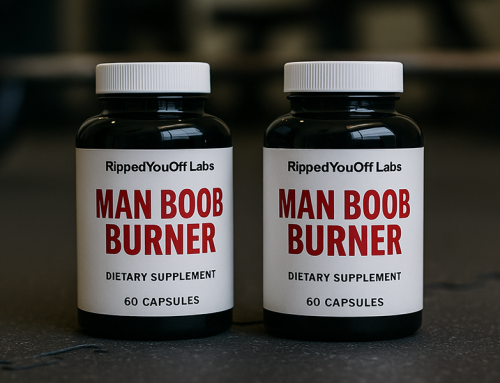
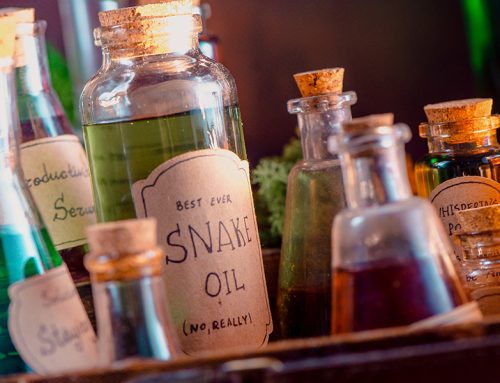
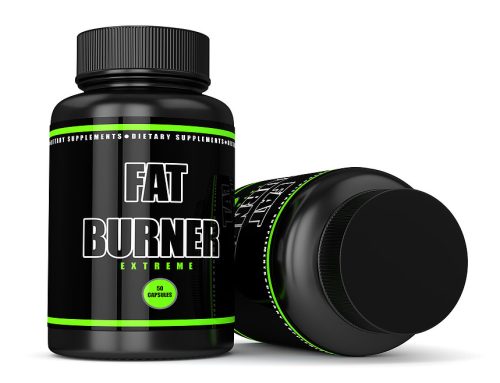
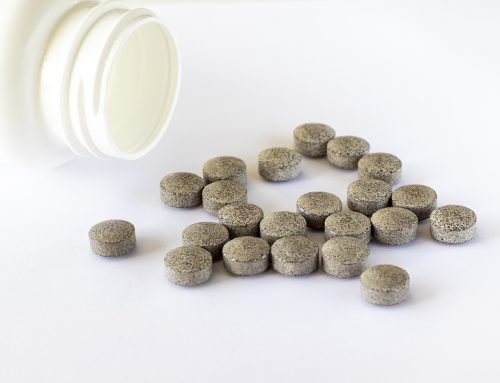
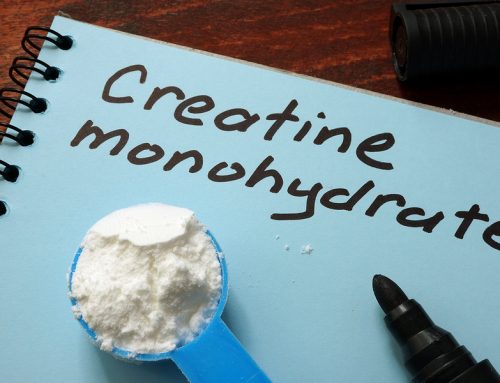
Thank you for this article. I, like you, like the protein powder in my oatmeal, or occasional tasty protein shake adding fruit or almond butter.The original article in consumer reports is so misleading and if someone didn’t take the time the read through it (like so many of us just skim through things these days), and then go and do some of their own research, they would immediately make the determination that protein shakes are bad for you and stop using them.Thank you for once again, putting out some valid information and to stop the panic that may have started from this one article.
I think there are too many ingredients in most protein drinks. I choose the ones with4 or 5 ingredients. I feel safe drinking those. They cost a little more, but they don’t have all the crap in them.
I don’t use protein powder anymore, simply because I don’t care for the chalky texture. I use fat-free cottage cheese in my smoothies. It’s neutral flavor and creamy texture blows protein powder out of the water- and, of course, cottage cheese is loaded with protein- 15 grams per half cup. And it’s much more natural.
Why the ‘f’ would there be arsenic in protein drinks!!! That’s disgusting.
Well said Tom… after reading that article, what you just said was pretty much everything I was saying to others.
why are any of those things in the drinks . it doesn’t seem like there would be any amount of those things in what we put in our body
Cherie wrote:why are any of those things in the drinks . it doesn’t seem like there would be any amount of those things in what we put in our bodyto the contrary – it IS in the foods we regularly put in our body on a daily basis. Why? partly environmental pollution.it’s not necessarily the manufacturing process of protein products – heavy metals can find their way into the ingredients by way of the environment – soil, water, etc.The FDA has data on the heavy metal content for foods you probably eat every day. For example shrimp 3.2 mcg of lead per 6 oz, sweet potato 1.6 mcg, apples 0.6 mcg, cottage cheese 0.5 mcg per cupalso according to FDA data:haddock 626 mcg arsenic 4 ozcanned tuna 105 mcg arsenic 4 ozrice, 3.1 mcg arsenic 1 cupchicken breast, 2.8 mcg 8 ozand of course there is the mercury in tuna fish and other fish high in food chain – shark, tilefish, king mackerel
That’s bad news for Muscle Milk users, and a know a bunch. But that’s a drop in the bucket.The first thing that came to mind when I started getting my protein up over the 200g/day level was “holy cow I’m eating a lot of chicken!” It made me hyper-aware that if I’m not careful of where I get my meat I’m going to end up with an overdose of the antiboitics, hormones, and any other crap that goes into commercial food production(see the film “Food Inc”).Buying organic, free range meat helps, but even then unless you raised and killed it yourself you never know how lax the regulations are(and I hear they are).Food for thought….
While I don’t think it’s good to have heavy metals in protein powder, I think they went way overboard in admonishing higher than “normal” protein intake. I prefer to use the no frills GNC Mega whey. I’ve never had an issue when adding 50-100g a day with this, and truth be told I haven’t had issues with 5g of creatine monohydrate. God forbid CR finds out about that.It sounds like they had something a priori in mind for the article and hired some vegan dietitians as experts. it’s bad enough they want all of us to get off any kind of living protein, now powders? Give me a break and they should all go back to the commune.
any thoughts on hemp powder, which is vegetal and high in protein?
I have no info on hemp protein as it relates to this story, but it seems a very good option for vegetarians/ vegans. if youre not vegetarian, I dont see why youd use it preferetially to the high quality proteins like whey, but hemp does also contain EFAs
Thanks Tom. Although you were much kinder to the report than me. This CR article will NOT change my protein shake drinking habits. I consume Muscle Milk as well. And I won’t be changing my habits.I don’t get my supplement advice from the magazine that helps me find a good washer/dryer combo and I highly suggest “you” don’t either.I encourage my clients to do their research and it’s more than a 4 page spread that is full of fallacies and is a straight attack on the bodybuilding industry as a whole.If people follow BFFM, this will not be an issue. Nobody would be consuming 3x serving of any liquid substance except water.
I have always been afraid to buy any protein products from Wal Mart due to the fact every damn thing from them come from China. Any products I use in the bodybuilding field comes from my natural health food store where I know the owner and trust the product.
To Niki and company:Some arsenic is normally found in soil and rocks etc, and has been there since long before the industrial revolution. It is the 20th most common element in the earth’s crust.
Completely agree with the inappropriateness of the commentary of high vs. low protein diet in the article. I don’t put much stock in Consumer Reports’ “reviews” anymore; I question their objectivity since I realized that a lot of their top winners also conveniently had the most ad space.
While I do like what CR has to say most of the time, this article did make me think that they were verging a bit on the alarmist side.I’m not a body builder, nor do I want to be one, but I occasionally use protein supplements if I’m too much in a hurry to eat “real food” (slept late, etc.). I won’t stop my now and then use of them.@Heather, I’ve never seen advertisements in Consumer Reports. Are you perhaps thinking of another publication?
I agree that this is just one study and there are some questions, HOWEVER, the key point is:”Small amounts of exposure are inevitable, but a product that exceeds the USP limit is clearly doing something wrong.”Why eat even potential crap when there’s healthier alternatives? There have been similar reports of skim milk having arsenic. Guess what, I still buy milk, just not from them!And the post by ING about arsenic… 20th most common makes it pretty rare. along those lines, less then .1% of the fish in the sea are great whites, but you won’t find me willfully swimming next to them!
Mr Venuto,Don’t you consume a post workout shake? I thought that was a pretty common practice for bodybuilders.
Don’t you consume a post workout shake? I thought that was a pretty common practice for bodybuilders. it is fairly common practice for bodybuilders and many other athletes as well to take post workout shakes.I usually eat whole food though. I would most often use a post workout drink when I’m trying to gain (muscular) weight as I have to eat a very large amount of a calories for that and the drink helps expedite that.Post workout nutrition is important, but good post workout nutrition can just as easily come from whole food.
Personally – I am not big into store bought protein powder anyways. I buy skim milk powder – 0 fat – and 9 grams of protein in 1/4 cup of powder – along with some carbs and other dairy benefits. I mix my oatmeal with 1/2 cup skim milk powder. I make my shakes with 1 raw egg, 1/2 cup skm milk powder, 1 banana, 2 tablespoons peanut butter, 2 teaspoons of flax oil (omega 3s) and about 1 cup of water and ice. Toss it in a blender – delicious, actual food protein shake (18 gr protein from milk, 8 grams from peanut butter, 5.5 grams from the egg and 1.5 grams from the banana for a nice 30+ grams of protein).Granted this has a lot more carbs than a straight Whey Protein shake does (abount 30 grams from the banana, 6.4 grams from peanut butter,and about 10 grams from the milk powder) – but at least I know exactly what I am getting from what sources. The protein in skim milk powder is about 75 % cassein and 25 % whey – the whey absorbs fast and the cassein is slow absorbing. Getting the protein from a variety of sources (dairy, plant and eggs) seems smart to me. Getting natural sources fats, vitamins and minerals even more so.Finally- skim milk powder is far less expensive than protein powder.I love the cottage cheese idea above as well – brilliant – also I have made home made yogurt from skim milk powder to use in shakes – yummy !
Protein powders are way overated! The average person really doesn’t know they don’t need that much protein to maintain their muscle mass or build muscle mass. If you eat proper, you should hit your protein requirements with any additional powders.
Thank you for the heads-up on the Consumer Report article. I had not run across it yet.I’m curious if isolates are less likely to have impurities than concentrates?Also, I’m willing to bet that the brands with impurities are sourcing their whey protein from overseas – like asia.
There is no way I would stop eating protein powder because of the consumer reports article. I eat a protein pancake with 1.5 scoops chocolate whey, a big scoop of cottage cheese, and 3-4 egg whites blended and it makes a decent large pancake (50g protein), plus it helps me get to my protein requirement for the day.I’m not going to stop eating wild sockeye salmon either, just because it contains a little mercury. Sure, if you’re eating it 3 times a day, every day, you might get mercury poisoning, but who really eats that much fish? You would get sick of it just like you’d get sick of protein powder 3 times a day all the time. Apples to oranges.On another note, I found the comment about the powder causing osteoporosis insulting. Women who eat protein and lift weights are probably way LESS likely to get osteoporosis, and now they’re going to be afraid of eating it! UGH.Thanks for the article, Tom. I love your common sense.Michelle
Knox wroteThank you for the heads-up on the Consumer Report article. I had not run across it yet.I’m curious if isolates are less likely to have impurities than concentrates?Also, I’m willing to bet that the brands with impurities are sourcing their whey protein from overseas – like asia.usually when people say isolate is “pure” they are referring to it being more protein and less lactose; i havent looked into whether isolate contains fewer impurities in the sense of heavy metals or toxinsre: asia — i have also heard speculation that protein sourced from China could be a source of contamination, but i havent researched it any further or seen any evidence yet, so cant say either way
The most disturbing thing about this article was when I visited Facebook and saw the number of people sharing this and the comments about how “Wow! I’m tossing my protein now.” These people just took a single inept study as fact.It’s important to be aware of what you are consuming. No doubt. But…The biggest lesson to be learned here is: Don’t let anything go completely unchallenged.
Nice article Tom, I didn’t hear the full story here, across the pond, so I’m glad to hear the full story from you.Once again it seems that people hear whispers of problems and start dancing from one extreme to the other.I have to laugh though as the same people who are giving up protein powders are probably the same people who can be found throwing a burger and fries into their mouths that night. They don’t like protein but do not mind hydrogenated fat
An excellent review with good sound advice. Thank you Tom.
This anti protein blabla, oh my God. Well, I’m proud to say that protein powders helped me a great deal in getting the best shape in my life, losing nearly 60 pounds and gaining significant strength, and I will rely on them in the future, probably in my whole life, to be able to stay in this good shape. Let them say whatever they want, after having gone through this path, I know what is beneficial for me to reach my fitness goals. Real food is great but when you can hardly afford the calories necessary to meet your protein needs, you have to use powders. Also, they are easy, cheap and convenient. And really, taking sick people and giving them high protein diets as “proof” of how “harmful” these powders are is ridiculous.
How about Prograde protein powder.. That’s definitely got to be safe right?
Looks to like the Codex Alimentaris is going after one of the biggest supplement industries first. They are claiming that nutrients are TOXINS! The Codex was passed here in Australia in december. The new rules will slowly be put in place over the next two years in the hope we wont notice. All supplements will be made illegal and those that will be allowed will be in such small doses and expensive they will have no benefit. Its in place in Germany now where you can purchase 6 x 50mg Vit C tablets for the bargain price of about $100!I take mercury, lead, arsenic, uranium etc etc in Colloidal form among about 70 others. Perfectly harmless, although soon to be made illegal!Just keep your eye on the news. They will begin bogus reports about nutrients being linked to tumors or other such rubbish soon.Meanwhile things like melamine will be allowed into foods.
Great article Tom. Just to let you and your readers know, Cytosport and EAS did release statements rebutting the Consumer Reports article.Links to each are pasted below for everyone to read.Cytosport’s News Releasehttp://www.cytosport.com/news/pressEAS’ News Releasehttp://eas.com/safety?utm_source=hp
Well hell….I’m not giving up my supplements just because of some (probably) biased Consumer Reports BS….If you don’t live the lifestyle, you just don’t get it! Something gonna kill me sooner or later anyway! You won’t catch me taking the easy way out and just dying! LOL!
This could be another ploy by the feds to discount the merits of supplemantion use, since they are adamantly trying to take our supplements away from us. It is one attack after another these days. When you think about all of the dangerous chemicals in the foods and drugs we consume…that have been declared perfectly safe by the powers that be….that have been proven to kill people……this is absolutely ludicrous!
Fact is, our environment is polluted, and so is our food. My one scoop of protein powder per day won’t make a big difference. It’s not any different from all my other foods. I’d be more worried about eating seafood on a daily basis, or eating junk and fast food.
I use protein powder as a supplement and frankly I don’t believe much of what mainstream media says. They’re full of it anyways. I don’t use it to the point where I would get any kind of adverse effects. Its a “supplement” thats what it is and thats how I use it, I certainly don’t depend on it as I eat whole foods as much as possible…btw I saw Food Inc. also and wow thats scary. Thanks for the article Tom…sanity prevails once again. Cheers.
Hi,I would rather see more reearch on French Fries and Big Macs… Ill take my chances with 1 protein drink every 2 days and Protein Powder over my cereal.Hahahahahahahah…… these studies are make work projects for outtashape dudes who should be taking the stuff, exercising hard, eating right foors, and setting goals.Next they will tell s that sleeping is detrimental to your health because you may dream about arseninc…. hahahahhahaLater!!!!!
Beware thinking that only eating whole foods and buying organic produce will get you away from heavy metal contamination. There is some evidence to suggest that it may be worse than conventionally grown produce. Face it, people. You can never completely avoid contamination of all kinds. Your best bet is to eat a wide variety of foods and avoid the ones you know to be bad.http://www.slate.com/id/2198756
I am new when it comes to using protein supps, but 1 thing ive been trying is 21-century milk&egg protein for the passt month… though i only use it like 1-2 times a week…then recently a trainer asked me to take his protein powder as he’s selling it at MYR220 for a 6pounds.should i buy it? i not sure whether will it be useful to me…
I will say that I felt Tom was a little easy on the Protein Shake companies in this report.I personally had to forcably stop drinking protein shakes this year in April after a traumatic exprience with diarrhoa , vomitting and downright weird massive chemical alterations on a new brand that I tried! I simply don’t trust any of it anymoreThey still have not found out or given me any feedback on why it made me sick and I have just stoppped supplementing protein altogether and simply eat all natural proteins, some days over 200g+ and it’s just fine … I’m happier and healthier
Thanks for sharing this article on protein shakes, Tom. Love it!
Thanks for the article Tom. I personally don’t use protein shakes anymore- Im not trying to get huge, and I think taking in massive amounts of protein is overrated.
But even if I was, I wouldn’t be too concerned since this study (as you pointed out) was for people making 3 shakes a day. Why do that do your body?
Gross.
I agree 100% with your assessment. These studies are started to FIND something wrong, it is the only why they can make a name for themselves. If we were to listen to all these studies we’d only be eating bugs. Much thanks.